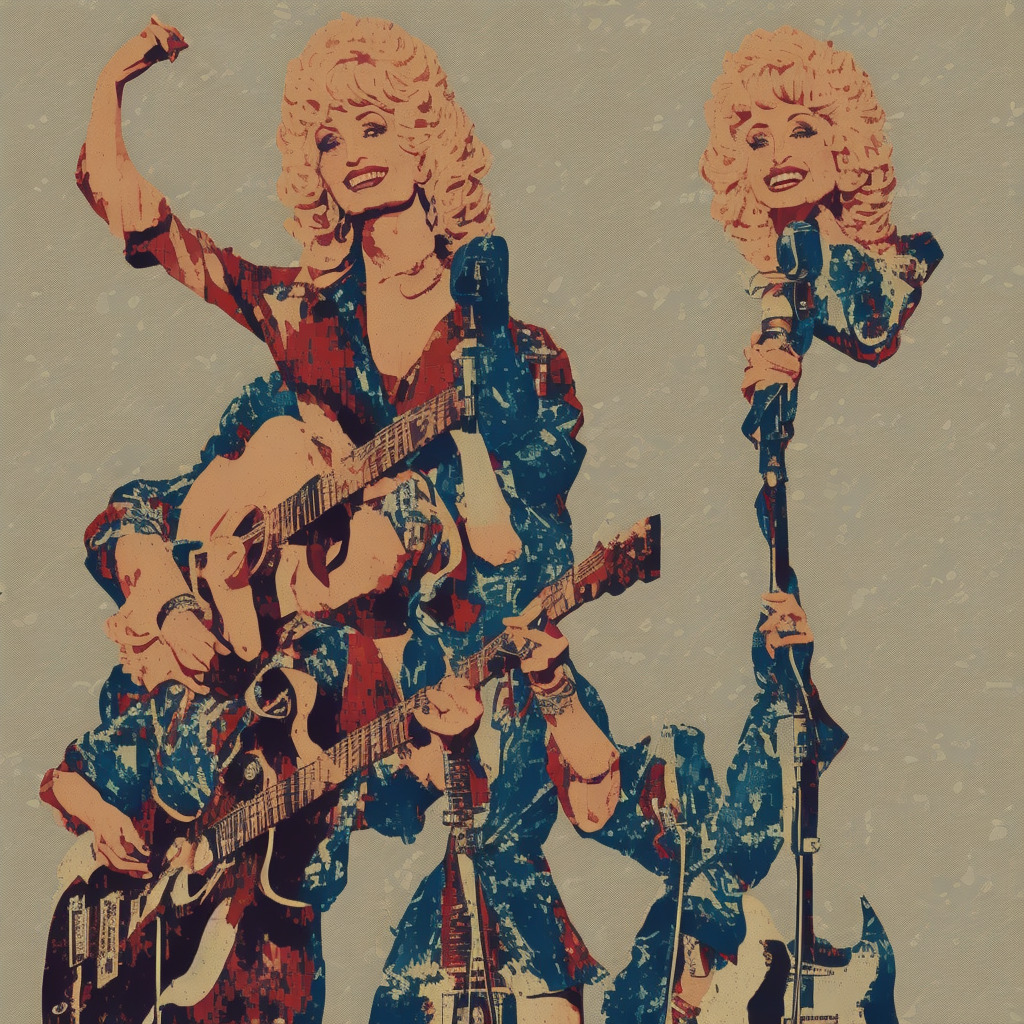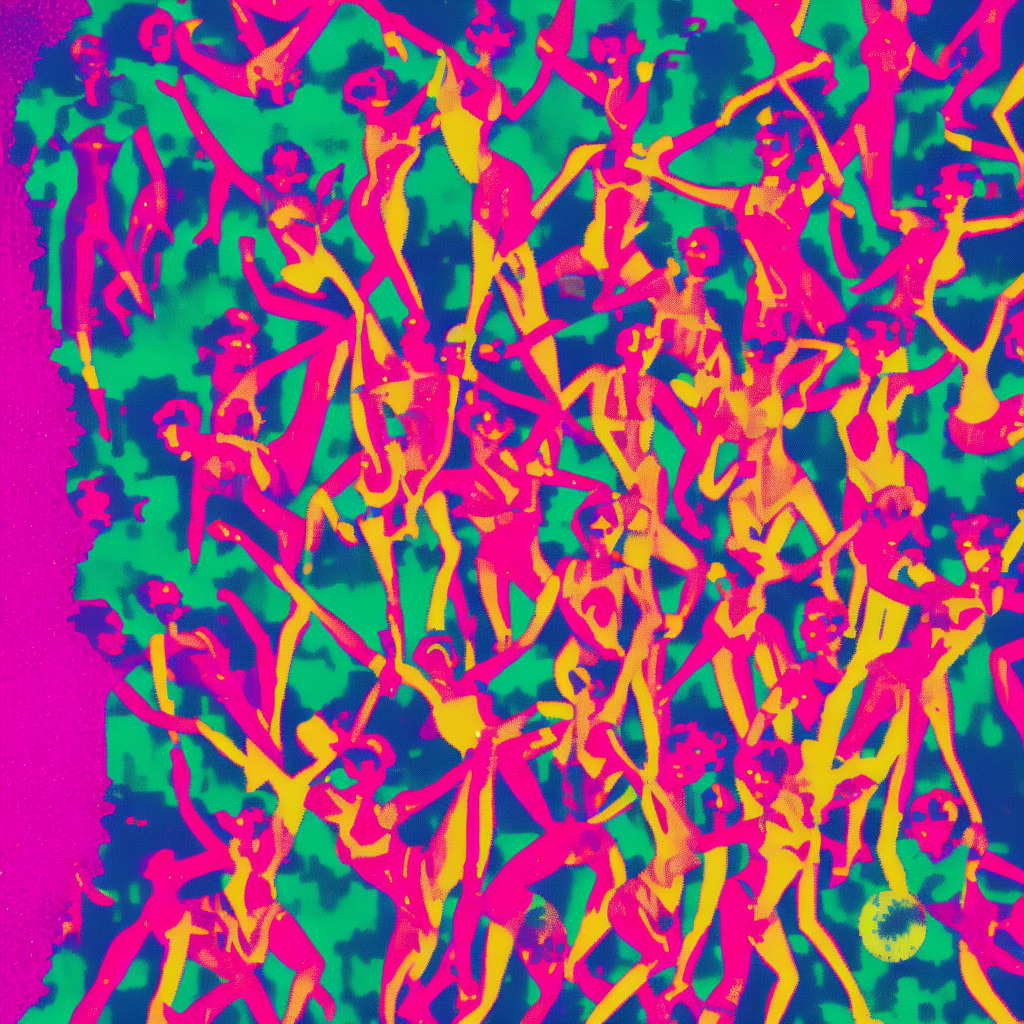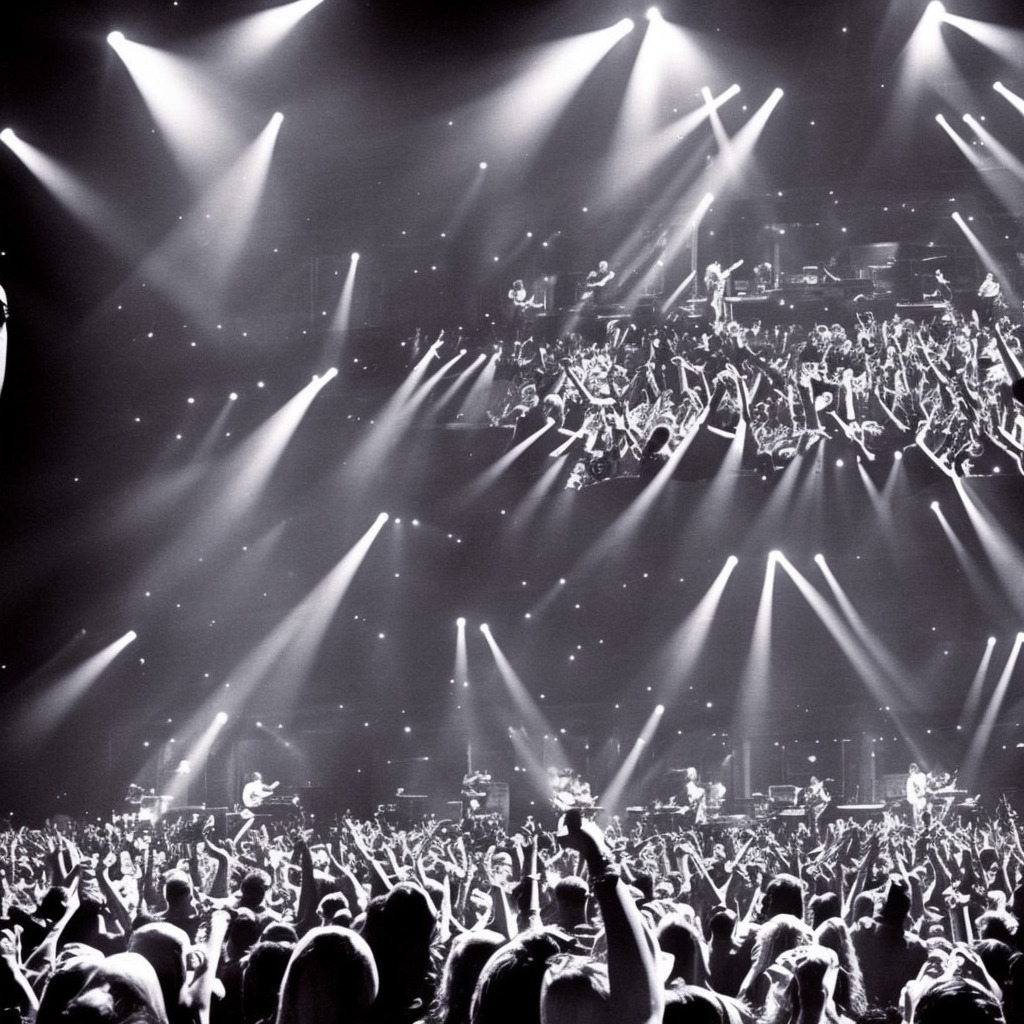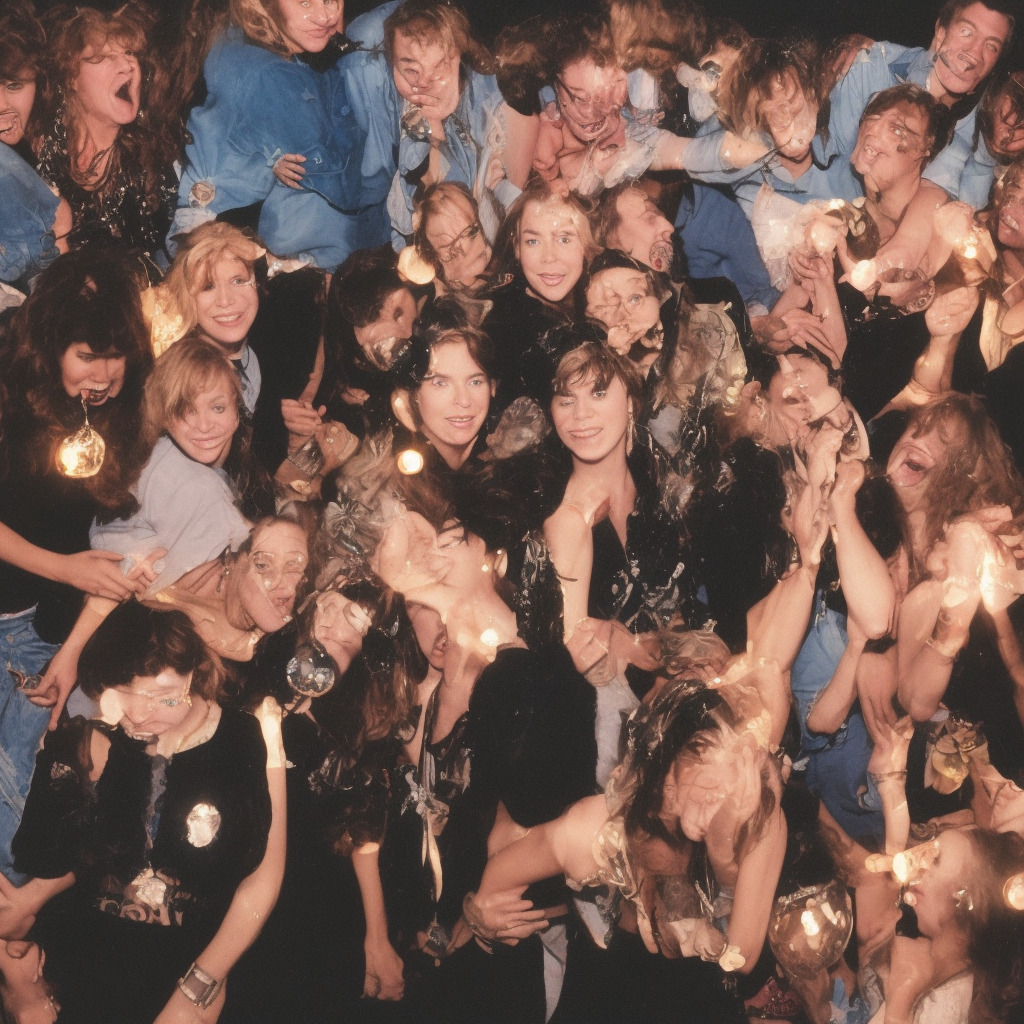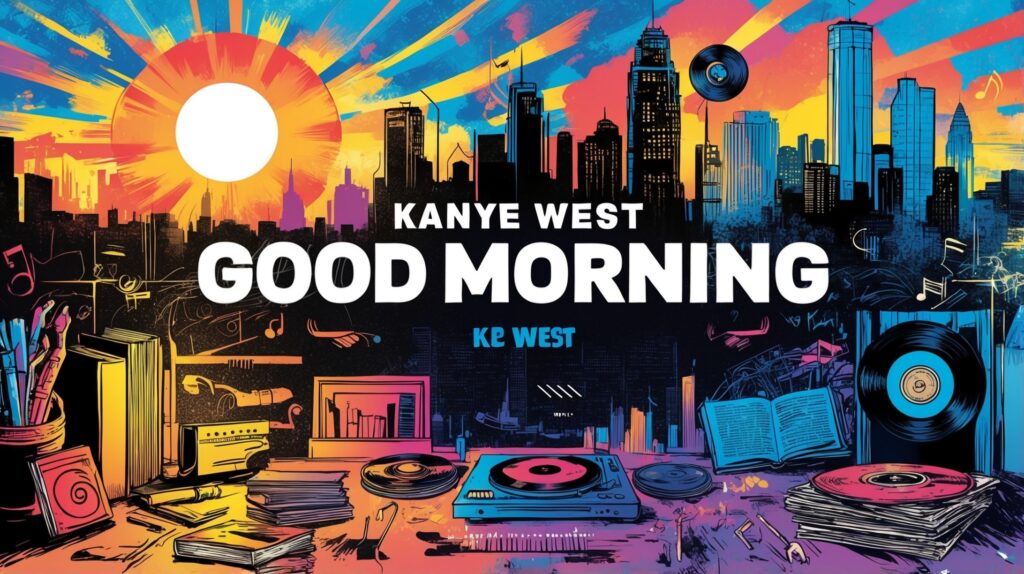Dive into the electrifying world of Billy Idol with the iconic track “Rebel Yell,” a cornerstone of rock music that continues to captivate audiences with its raw energy and rebellious spirit. This introduction will guide you through the song’s journey from its inception to becoming a defining anthem of the 1980s rock scene, showcasing Idol’s unique blend of punk rock attitude and pop sensibility.
The Birth of an Anthem: “Rebel Yell” emerged from the creative synergy between Billy Idol and guitarist Steve Stevens, inspired by a night of revelry with rock royalty. The song’s title was sparked by an encounter with Rebel Yell bourbon at a party attended by members of the Rolling Stones, igniting Idol’s imagination and setting the stage for this rock masterpiece.
A Fusion of Influences: Billy Idol’s music has always been a melting pot of influences, and “Rebel Yell” is no exception. Drawing from his punk rock roots with Generation X and meshing it with the synth-infused sound of the 80s, Idol crafted a song that is both aggressive and danceable. The track’s distinct sound, characterized by Stevens’ fiery guitar work and Idol’s snarling vocals, bridges the gap between punk’s rawness and the mainstream appeal of new wave.
Enduring Legacy: Since its release, “Rebel Yell” has transcended its era to become a timeless classic, resonating with generations of fans. Its infectious chorus, combined with Idol’s charismatic presence, has cemented the song’s place in the pantheon of rock anthems. As we delve deeper into the song’s components, from its lyrics and music video to its chart success and the album it hails from, we’ll uncover the layers that make “Rebel Yell” an enduring symbol of rebellion and rock ‘n’ roll spirit.
Charting an Unexpected Success: The Slow-burn Triumph of Idol’s Magnum Opus
Billy Idol’s ‘Rebel Yell,’ a fusion of musical influences, set the rock scene ablaze in 1983, its delayed success and enduring acclaim echoing the artist’s unique vision and undeniable impact on music history.
 Billy Idol, an English rock singer, created a significant impact on the music industry with his second studio album, “Rebel Yell,” released in 1983. The album, a collaboration with producer Keith Forsey and multi-instrumentalist Steve Stevens, was originally recorded without a drummer, utilizing electronic drum machines instead. As an afterthought, Thommy Price was hired to perform the drum parts on some of the tracks.
Billy Idol, an English rock singer, created a significant impact on the music industry with his second studio album, “Rebel Yell,” released in 1983. The album, a collaboration with producer Keith Forsey and multi-instrumentalist Steve Stevens, was originally recorded without a drummer, utilizing electronic drum machines instead. As an afterthought, Thommy Price was hired to perform the drum parts on some of the tracks.
“Rebel Yell,” the album, is a masterful blend of new wave, pop rock, and hard rock influences, showcasing Idol’s versatility and innovative musical approach. The intriguing story behind the album title, inspired by Rebel Yell bourbon whiskey he drank at a party with the Rolling Stones, adds a curious detail to the narrative of the album’s creation.
The titular track, “Rebel Yell,” served as the lead single for the album. Despite not initially making a significant impact on the UK Top 40 charts, a reissued version in 1985 skyrocketed to the 6th spot. It also gained traction in the US, reaching the 46th spot. This slow-burn success underscores the enduring appeal of the song and its gradual but considerable impact on Idol’s fans and the wider music industry.
Over the years, “Rebel Yell” has garnered wide critical acclaim. In a public vote in 2009, the song was named the 79th best hard rock song of all time by VH1, a testament to its enduring appeal and the resonance of Idol’s talent. This recognition further solidified the song’s place in rock music history and underscored its lasting impact on Idol’s fans.
In retrospect, “Rebel Yell” serves as a milestone in Billy Idol’s career, reflecting his distinct musical style and his lasting influence on the rock music scene. From its unorthodox origins to its delayed success and long-lasting acclaim, “Rebel Yell” has truly carved out a distinct place in music history. For Billy Idol, the song remains a significant highlight in his illustrious career, demonstrating his unique musical vision and prowess.
Echoing Legacy: A Hard Rock Anthem’s Enduring Influence
“Rebel Yell”: Billy Idol’s 1983 classic, a chart-dominating hard rock anthem, that continues to resonate across generations, fueling sporting events, inspiring covers, and is set for a 2024 reissue!
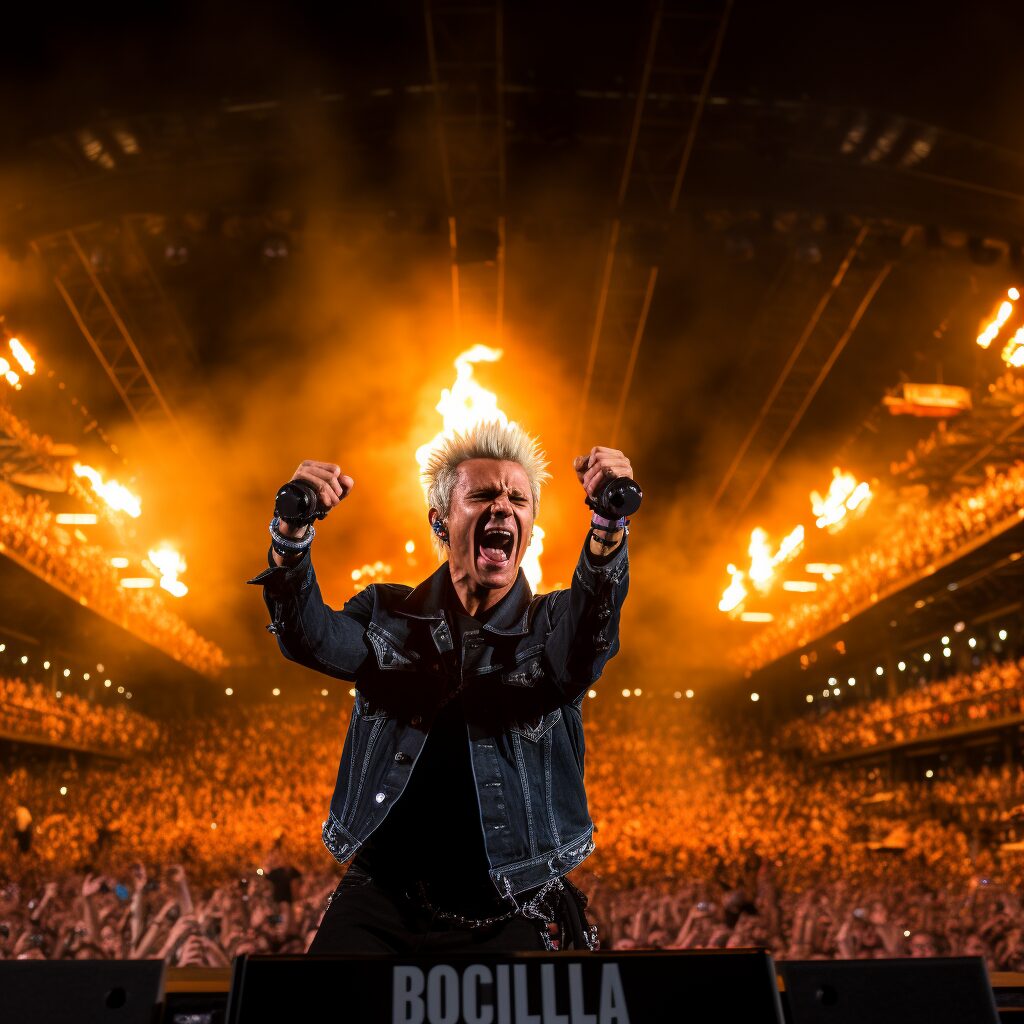 “Rebel Yell”, the title track of Billy Idol’s 1983 album, not only charted outside the UK Top 40, but a 1985 re-issue also peaked at no. 6, and it managed to reach no. 46 in the US. Renowned for its hard rock energy, this iconic song was named the 79th best hard rock song of all time by VH1 in 2009, based on a public vote, cementing its position in the pantheon of rock music.
“Rebel Yell”, the title track of Billy Idol’s 1983 album, not only charted outside the UK Top 40, but a 1985 re-issue also peaked at no. 6, and it managed to reach no. 46 in the US. Renowned for its hard rock energy, this iconic song was named the 79th best hard rock song of all time by VH1 in 2009, based on a public vote, cementing its position in the pantheon of rock music.
Over the years, “Rebel Yell” hasn’t just remained a popular song; its influence has echoed through the decades, resonating with new generations of listeners and continuing to pump up crowds at sporting events. In fact, the New York Yankees have been using “Rebel Yell” as their victory song since the 1990s, attesting to its enduring appeal and impact.
In the realm of covers, the metal band Queensrÿche put their own personal spin on “Rebel Yell”, showcasing the song’s versatility and timeless charm. As a testament to its ongoing relevance, a deluxe anniversary reissue of “Rebel Yell” is in the works for 2024, promising to bring this classic track to even more listeners.
While “Rebel Yell” may not have appeared prominently in mainstream movies, TV shows, or video games, its powerful legacy in the music world and its enduring popularity with audiences speaks for itself. With its signature hard rock sound and rebellious spirit, “Rebel Yell” remains a classic anthem that continues to inspire and energize listeners around the world.
Harnessing the Power of Visual Storytelling: Billy Idol’s Dynamic Approach to Music Video Production
“Billy Idol’s iconic ‘Rebel Yell’ video: A revolutionary blend of concert and narrative, propelling the song to stardom and solidifying Idol’s image as a rock ‘n’ roll rebel. Its innovative visuals, Idol’s dynamic performance, and an engaging storyline set a new precedent for music videos.”
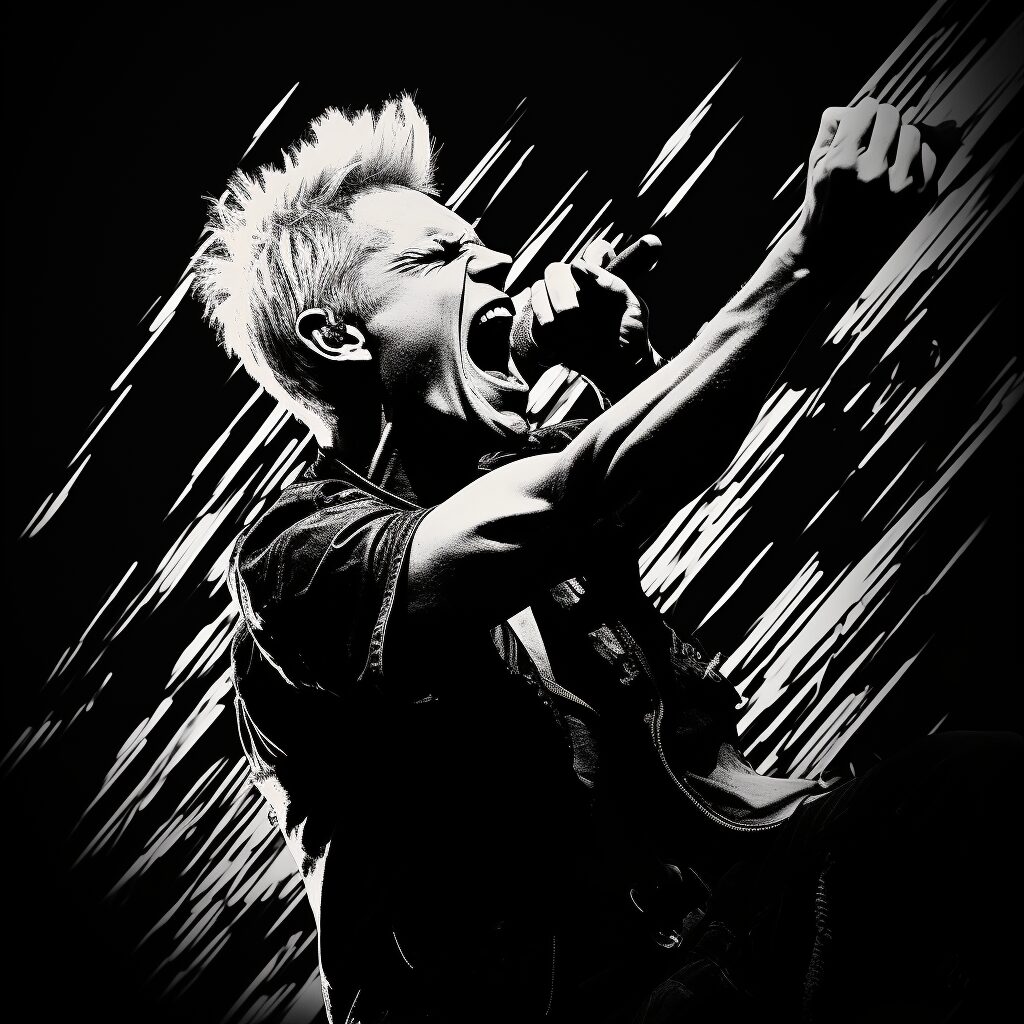 The music video for “Rebel Yell” played a crucial role in the song’s popularity. One of the first videos to blend concert footage with narrative elements, it offered viewers a dynamic representation of Billy Idol’s stage presence and energy. The video, directed by Jeff Stein, was resplendent with dark, post-apocalyptic visuals that perfectly mirrored the rebellious theme of the song. Billy Idol’s impressive performance in the video, with his trademark sneer and fist pump, became instantly iconic, further augmenting the song’s popularity.
The music video for “Rebel Yell” played a crucial role in the song’s popularity. One of the first videos to blend concert footage with narrative elements, it offered viewers a dynamic representation of Billy Idol’s stage presence and energy. The video, directed by Jeff Stein, was resplendent with dark, post-apocalyptic visuals that perfectly mirrored the rebellious theme of the song. Billy Idol’s impressive performance in the video, with his trademark sneer and fist pump, became instantly iconic, further augmenting the song’s popularity.
The video is emblematic of the MTV era, utilizing the medium’s potential to its fullest. The combination of Idol’s charisma, the exhilarating live performance scenes, and the engaging storyline created a visually compelling narrative that became synonymous with the song itself. Not only did it make “Rebel Yell” more accessible to a wider audience, but it also helped solidify Idol’s image as a rock ‘n’ roll rebel.
Critics and audiences alike lauded the video for its innovative approach. Its use of black and white footage, interspersed with vibrant shots of Idol’s performance, created a stark contrast that added depth to the video narrative. The video’s aesthetic played a significant role in shaping Idol’s image, and its success set a precedent for future music videos.
Behind the scene, a dedicated team worked tirelessly to bring the video to life. Director Jeff Stein, known for his work with The Who, was instrumental in conceptualizing the video’s unique blend of concert footage and storyline. Idol’s band, including Steve Stevens on guitar, Judi Dozier on keyboards, and Thommy Price on drums, were also featured prominently in the video. Their combined performances added to the raw, energetic feel of the video, reinforcing the song’s rebellious spirit.
While the video didn’t feature any celebrity cameos, the sheer force of Idol’s performance was enough to captivate audiences. The absence of other big names allowed Idol to fully command the stage, demonstrating his prowess as a performer and his ability to carry a narrative on his own. The “Rebel Yell” video remains a quintessential example of Billy Idol’s unique blend of rock ‘n’ roll energy and pop culture appeal, contributing significantly to the enduring popularity of this iconic song.
Charting the Journey of a Rock ‘n’ Roll Phenomenon
“Rebel Yell” – Billy Idol’s enduring rock anthem, transcended the charts, ignited his solo career, and became a cultural phenomenon. This punk-pop fusion illustrates Idol’s staying power, and shines through its unconventional promotion, fervent reception, and continued relevance in today’s digital and social media landscape. Far from just a song, “Rebel Yell” reflects Idol’s timeless charm and the immutable spirit of rock ‘n’ roll.
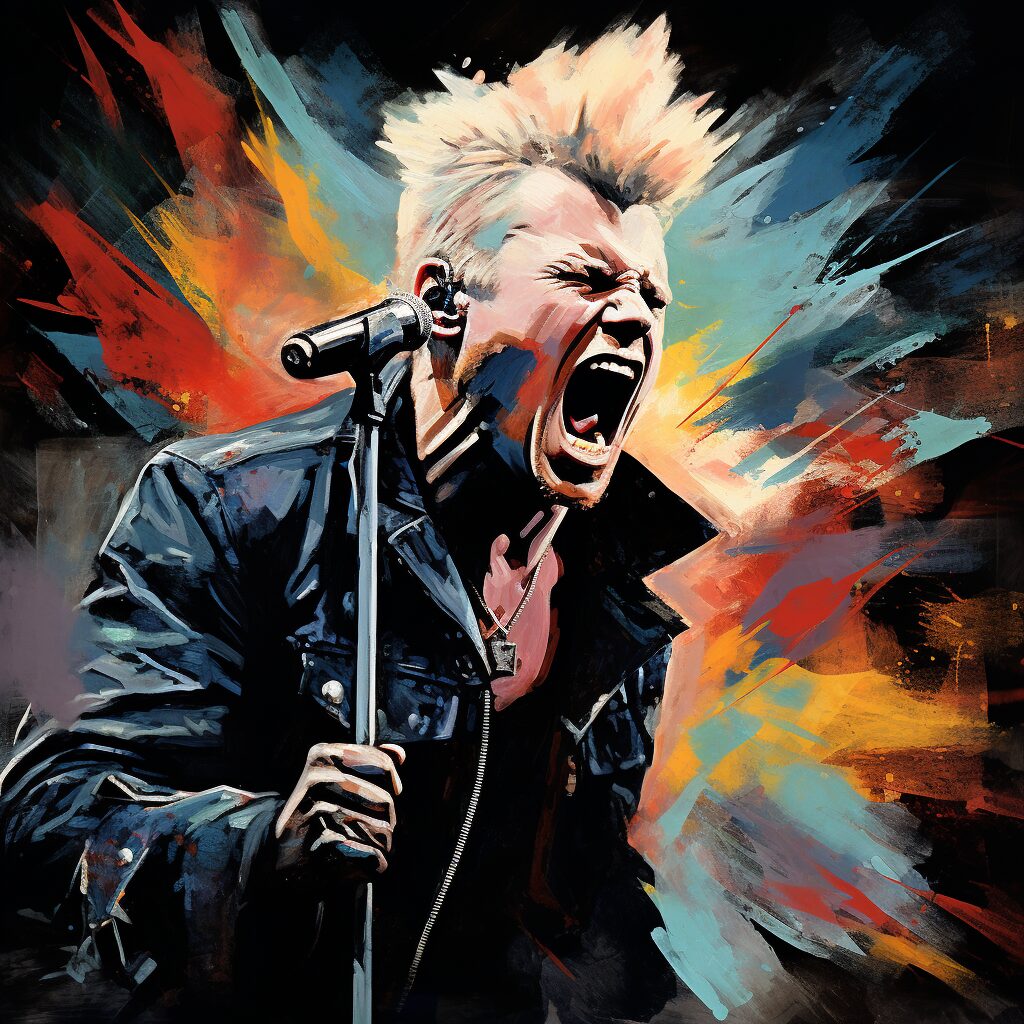 The commercial success of “Rebel Yell” was a testament to the song’s irresistible appeal and Billy Idol’s unique brand of rock ‘n’ roll. Despite experiencing a slow start, the song eventually climbed up the charts in both the UK and the US, demonstrating its enduring popularity across different markets. The song’s success was not just restricted to chart performances; it also generated considerable revenue, influencing Idol’s subsequent tours and merchandise sales.
The commercial success of “Rebel Yell” was a testament to the song’s irresistible appeal and Billy Idol’s unique brand of rock ‘n’ roll. Despite experiencing a slow start, the song eventually climbed up the charts in both the UK and the US, demonstrating its enduring popularity across different markets. The song’s success was not just restricted to chart performances; it also generated considerable revenue, influencing Idol’s subsequent tours and merchandise sales.
In comparison to other tracks of the era, “Rebel Yell” distinguished itself with its unique blend of punk rock energy and pop sensibilities. The song wasn’t an immediate success, but it outlasted many other tracks, illustrating Idol’s staying power in the music industry.
The song’s impact on Billy Idol’s career was substantial. It marked a turning point, allowing him to establish his identity as a solo artist. The song’s success served as a springboard for Idol’s future hits and helped solidify his reputation as an innovative musician.
The marketing and promotional strategies for “Rebel Yell” were unconventional, mirroring Idol’s rebellious image. The music video played a crucial role in promoting the song, harnessing the power of visual storytelling to captivate audiences. The video, with its mix of live performance and narrative, became emblematic of Idol’s unique brand of rock ‘n’ roll.
Reception to “Rebel Yell” was overwhelmingly positive. The song resonated with fans and critics alike, earning Idol multiple accolades and nominations. “Rebel Yell” quickly became a cultural phenomenon, its rebellious spirit resonating with the zeitgeist of the era.
In the digital age, “Rebel Yell” has maintained its relevance. The song continues to garner streams on platforms like Spotify and Apple Music, and its iconic music video still attracts views on YouTube. The song’s popularity also extends to social media platforms like TikTok and Instagram, where it has sparked viral trends and challenges.
Fan engagement around “Rebel Yell” remains high, with active discussions on fan forums and social media platforms. The song’s passionate fanbase continues to breathe new life into it, ensuring its legacy endures.
The economic impact of “Rebel Yell” can’t be understated. The song’s success translated into tangible financial gains for Idol, boosting sales of his albums and merchandise. The song also significantly influenced his touring career, leading to sold-out concerts and performances worldwide.
In summary, “Rebel Yell” is more than just a song; it’s a cultural phenomenon that has left an indelible mark on the music industry. Its chart success, popularity, and financial success are testament to Billy Idol’s enduring appeal and the timeless allure of rock ‘n’ roll.
Last night, that little angel, she came pumping on my floor
She said, “Come on, baby, you got a license for love
And if it expires, I pray help from above”
Because
In the midnight hour she cried more, more, more, more
With a rebel yell she cried more, more, more
In the midnight hour, babe, more, more, more
With a rebel yell more, more, more
More, more, more!
She don’t like slavery, she won’t sit and beg
But when I’m tired and lonely, yeah, she gives me head
I said, “What set you free and brought you to me, babe?”
“What set you free? I need you here by me”
Because
In the midnight hour she cried more, more, more
With a rebel yell more, more, more, yow!
In the midnight hour, babe, more, more, more
With a rebel yell
More
I live in my own heaven
I collect it to go at the 7-11
Yes, I’m out all night to collect a fare
Just so long, just so long as it don’t fuck up my hair
I walked the ward for you, babe
A thousand miles for you
Now who dried my tears of pain, babe?
A million times for you, for you
I’d sell my soul for you, babe
What’s money to burn for you, for you
I’d give you all, and have none, babe
Justa, justa have you here by me
Because
In the midnight hour she cried more, more, more
With a rebel yell she cried more, more, more, yow!
In the midnight hour, babe, more, more, more
With a rebel yell more
More, more, more!
Ooh yeah, my little dancer
She want more
More, more, more, more
More, more, more, more
She want more
More, more, more, more
Yeah!
Unveiling the Heartbeat of Rebellion
An in-depth exploration of the emotive storytelling and thematic richness within the lyrics of Billy Idol’s ‘Rebel Yell’, revealing the song’s enduring appeal and its connection to the spirit of rebellion and freedom.
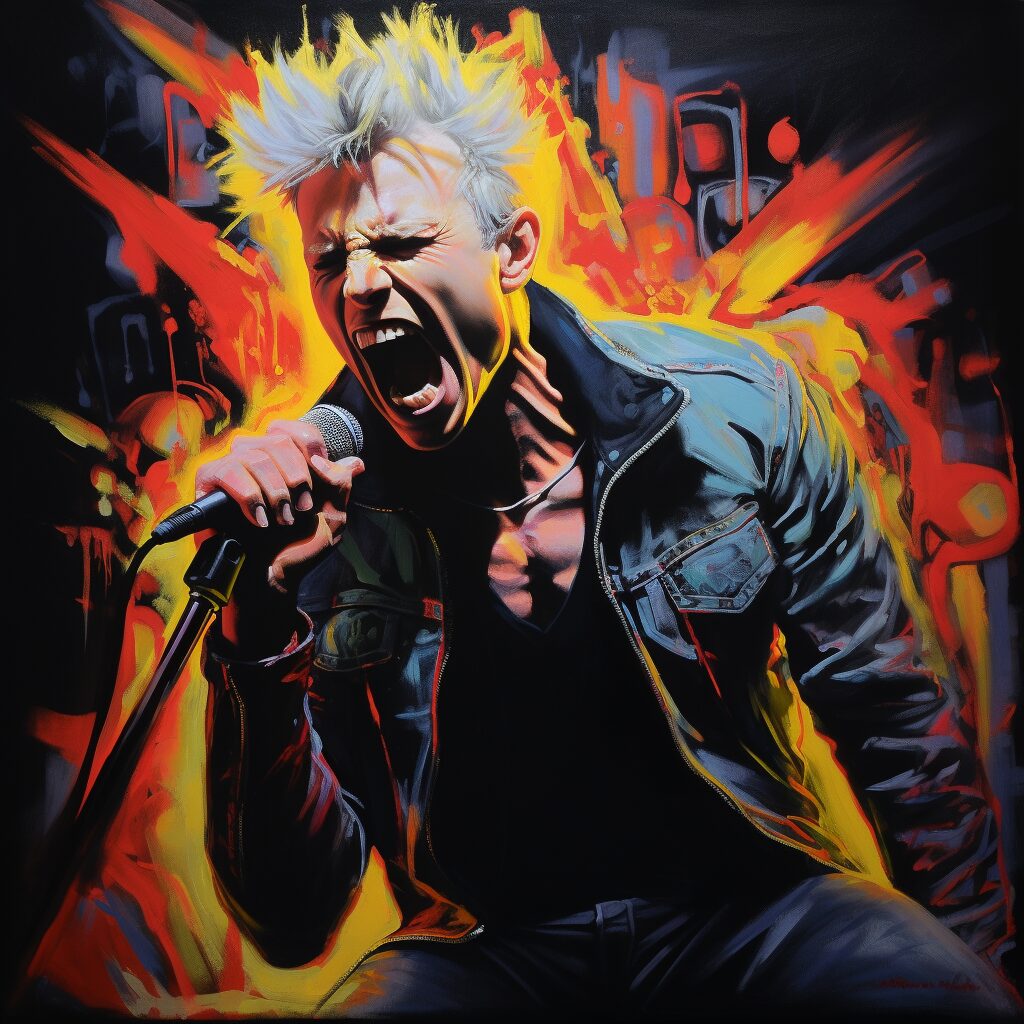 To delve into the lyrics of “Rebel Yell” by Billy Idol, we embark on an exploration of its raw energy and emotive storytelling. This analysis aims to uncover the layers of meaning and artistic expression woven into the fabric of the song.
To delve into the lyrics of “Rebel Yell” by Billy Idol, we embark on an exploration of its raw energy and emotive storytelling. This analysis aims to uncover the layers of meaning and artistic expression woven into the fabric of the song.
Lyrical Themes and Messages
“Rebel Yell” pulsates with themes of desire, rebellion, and the nocturnal pursuit of freedom. The chorus, with its iconic cry of “more, more, more,” encapsulates an insatiable yearning, not just in a physical sense but as a metaphor for the relentless pursuit of one’s passions and the breaking of societal constraints. This song becomes a symbol of the unbridled spirit of the 80s, reflecting a generation’s collective yearning for individuality and liberation.
Narrative and Storytelling
Billy Idol employs a first-person narrative that immerses the listener in a vivid tableau of late-night escapades and encounters. This perspective crafts a direct emotional connection, inviting the audience to experience the rebel’s journey alongside him. The storytelling is not linear but rather evocative, painting scenes of wild nights and the allure of the “midnight hour” that resonate with the listener’s imagination.
Use of Literary Devices
Idol’s skillful use of repetition, particularly in the refrain of “more, more, more,” serves not only as a catchy hook but also emphasizes the theme of excess and the hunger for life’s thrills. The imagery of “a rebel yell” conjures notions of defiance and freedom, while the vivid descriptions of the night set a backdrop against which the drama of the lyrics unfolds.
Emotional Impact and Relatability
The raw energy and emotive delivery of “Rebel Yell” forge a deep connection with the audience. The song’s portrayal of longing and rebellion taps into universal feelings of desire and the quest for identity, making it profoundly relatable. Its enduring appeal lies in its ability to evoke a spectrum of emotions, from exhilaration to introspection.
Language and Wordplay
Idol’s choice of words in “Rebel Yell” is both potent and evocative. The language is straightforward yet charged with emotion, crafting a narrative that is accessible yet deeply resonant. The titular “rebel yell” itself is a masterful play on words, suggesting both a literal cry of defiance and the metaphorical voice of a generation clamoring for change.
Personal Reflections of the Artist
Billy Idol has often shared that “Rebel Yell” was inspired by an event he attended, where the term was used in a completely different context. This anecdote adds a layer of personal history to the song, offering insight into the creative process and how everyday experiences can be transformed into compelling art.
In summary, “Rebel Yell” is a multifaceted composition that blends raw emotion, vivid storytelling, and linguistic ingenuity. Its ability to connect with listeners on an emotional level, combined with its thematic richness, cements its place as a standout track in the annals of rock music.
Mastering the Art of Rebellion: A Musical Analysis
“Billy Idol’s ‘Rebel Yell’—a timeless ’80s anthem masterfully blending pop and rock, characterized by its rebellious B minor key, engaging rhythmic structure, and powerful contrast of dynamics.”
 Delving into the musical structure of Billy Idol’s “Rebel Yell”, it’s clear that the song is a masterclass in blending pop sensibilities and rock ‘n’ roll grit, a definitive track of the ’80s.
Delving into the musical structure of Billy Idol’s “Rebel Yell”, it’s clear that the song is a masterclass in blending pop sensibilities and rock ‘n’ roll grit, a definitive track of the ’80s.
The song is primarily written in the key of B minor, which lends itself to the rebellious tone of the song – B minor is often used in rock to create a somber or serious mood, perfect for a rebel yell.
The intro is a tantalizing build-up of tension that leads into the first verse. It starts with a steady beat, with the bass drum and hi-hat setting the tempo. The tempo is lively, set at around 166 beats per minute, a typical tempo for rock songs aiming for an energetic feel.
The chord structure of “Rebel Yell” is fairly straightforward. The verses follow a Bm – G – D – A chord progression, which is a commonly used sequence in the rock genre. The simplicity of this progression allows the power of Idol’s vocals and the distinct guitar riffs to shine.
The chorus is where the song lets loose – embodying the rebel yell in its full auditory glory. It follows a G – D – A – Bm progression, providing a satisfying resolution and a sense of completion after the tension built in the verses.
Another distinctive feature in “Rebel Yell” is its use of dynamics. The verses are performed at a lower dynamic level which contrasts effectively with the explosive energy of the chorus. This creates a light and shade effect, further intensifying the rebellious theme of the song.
In conclusion, “Rebel Yell” is a finely crafted piece of rock music that showcases Billy Idol’s ability to blend catchy chords and strong rhythmic structures with his distinct vocal delivery. The technical aspects, although seemingly simple, work together seamlessly to create a song that captures the spirit of rebellion and has stood the test of time.
Crafting the Rebellion: Billy Idol & Steve Stevens
Exploring the compositional genius behind “Rebel Yell” reveals the intricate interplay between Billy Idol’s thematic vision and Steve Stevens’ musical ingenuity.
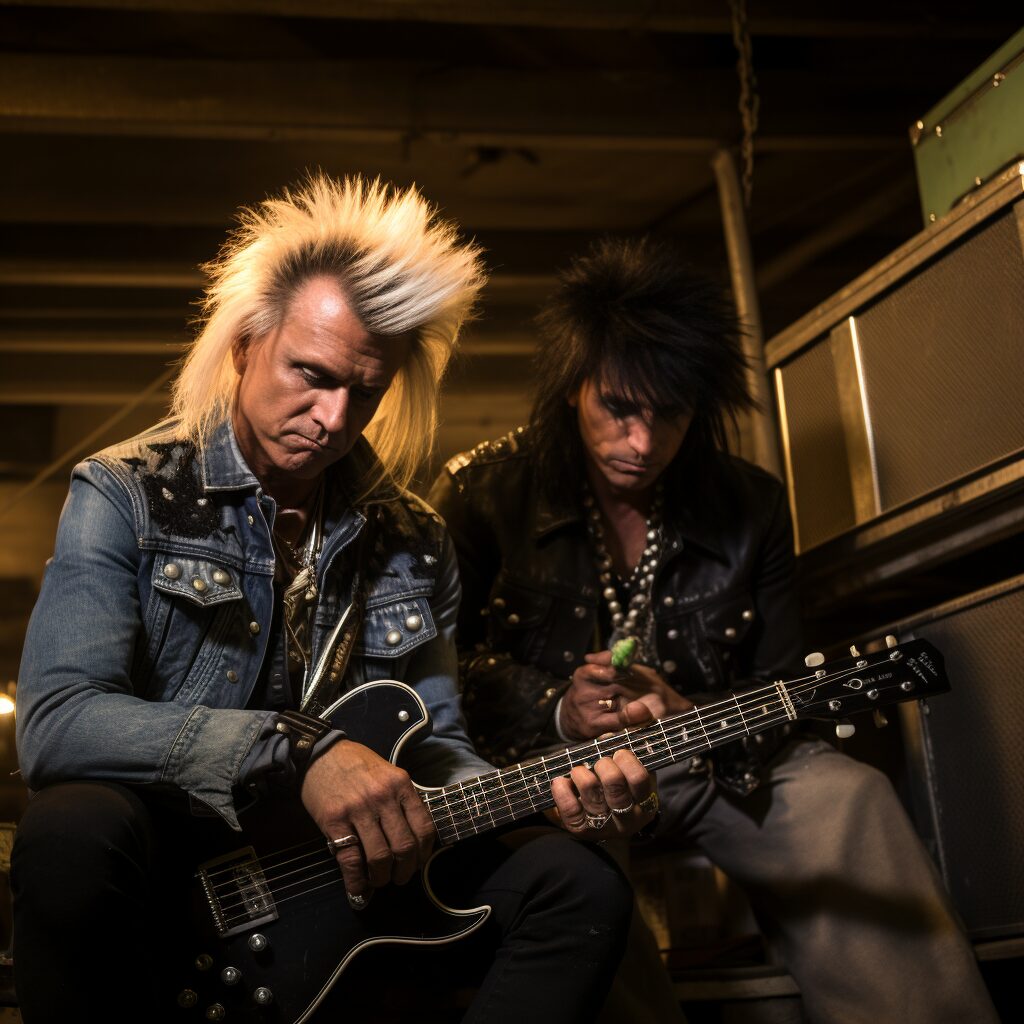 To explore the fascinating world of “Rebel Yell” and its creation, we delve into the mind and career of its composer, Billy Idol, and his collaborator, guitarist Steve Stevens. This partnership between Idol and Stevens was pivotal in crafting the unique sound and raw energy that “Rebel Yell” is renowned for.
To explore the fascinating world of “Rebel Yell” and its creation, we delve into the mind and career of its composer, Billy Idol, and his collaborator, guitarist Steve Stevens. This partnership between Idol and Stevens was pivotal in crafting the unique sound and raw energy that “Rebel Yell” is renowned for.
Billy Idol, born William Michael Albert Broad, emerged from the UK’s post-punk scene, transitioning from the band Generation X to a solo career that would etch his name into the annals of rock history. His musical journey is marked by a blend of punk’s rebellious energy and the danceable rhythms of the 80s pop-rock. Steve Stevens, known for his versatile guitar skills, brought a fusion of rock, flamenco, and electronic music to Idol’s work, creating a signature sound that’s both edgy and accessible.
Idol’s raw vocal style and charismatic stage presence, combined with Stevens’ innovative guitar work, created a synergy that defined the 80s rock scene. “Rebel Yell,” the song and the album, showcases this dynamic collaboration. Stevens’ guitar riffs, characterized by their complexity and energy, complement Idol’s thematic exploration of love, rebellion, and the nocturnal allure of the city.
“Rebel Yell” stands out as a testament to Idol’s evolution from a punk rocker to a mainstream rock icon. The song’s composition, a blend of punk’s straightforward aggression and rock’s melodic hooks, demonstrates Idol’s ability to adapt and thrive in the evolving music landscape. Stevens’ contribution, particularly his memorable guitar solos, added depth and sophistication to Idol’s music, elevating the entire album.
The impact of “Rebel Yell” extends beyond its initial chart success. It has become a cultural touchstone, representing the rebellious spirit of the 80s while influencing subsequent generations of musicians. Idol and Stevens’ collaboration is a hallmark of innovative songwriting and musical experimentation, setting a benchmark for artists striving to blend genres and styles.
From the unorthodox origins to the delayed success, Billy Idol’s ‘Rebel Yell’ echoes through the decades. A testament to Idol’s versatile talent and innovation, the song blends pop sensibilities with rock ‘n’ roll grit, creating a rebel yell that resonates around the world. Stay tuned for the 2024 deluxe anniversary reissue! #BillyIdol #RebelYell #ClassicRock


